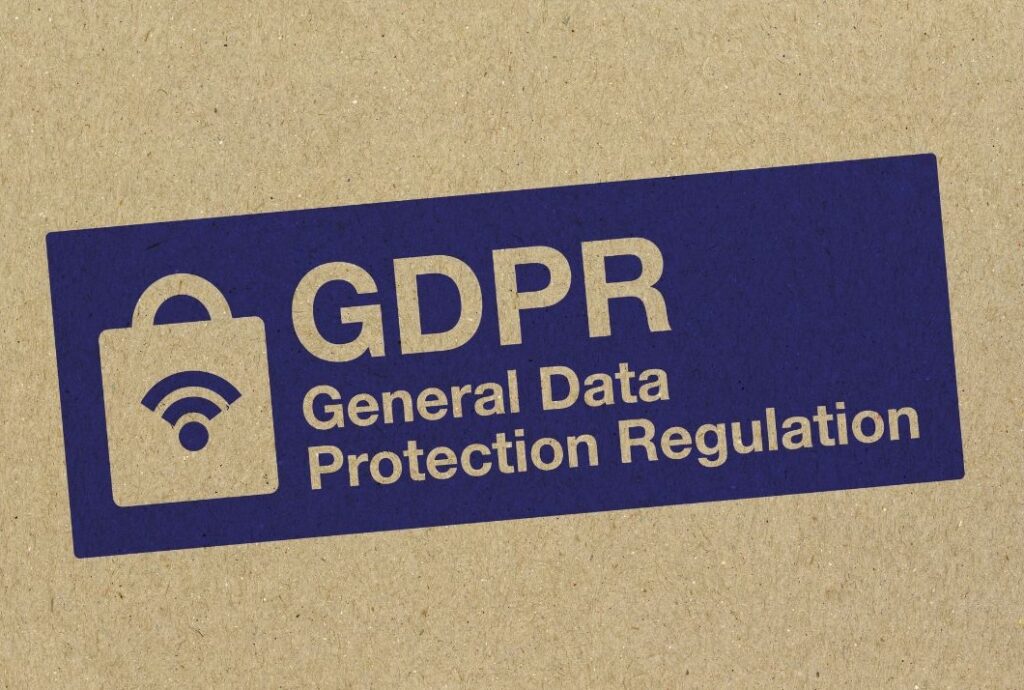The Complete Guide to GDPR and Outsourcing in the UK
Data breaches are not just potential threats but real occurrences, understanding and complying with the General Data Protection Regulation (GDPR) is needed for business survival, especially in the UK.
This regulation is not only a legal framework but also a reflection of growing public concern over privacy.
GDPR’s influence extends beyond Europe, and any business handling the data of EU residents.
In the context of GDPR and outsourcing, where tasks such as customer support and data processing are transferred to third parties, ensuring GDPR compliance is critical.
This guide will explore how businesses in the UK can make sure that their outsourcing practices stick to GDPR requirements, safeguarding both their operations and their customers’ data.
Understanding GDPR

Key Principles of GDPR
GDPR in the UK is built upon several key principles that show how personal data should be managed and processed.
These include lawfulness, fairness, and transparency, which require that data be handled legally and in a way that does not disadvantage the data subject.
Purpose limitation and data minimisation show that the data collected should be for a specified, explicit purpose and limited strictly to what is necessary for the purposes for which they are processed.
The principles of accuracy and storage limitation ensure that personal data is accurate, kept up to date, and retained only for as long as necessary.
The final point of integrity and confidentiality says that personal data must be processed in a manner that ensures appropriate security, including protection against unauthorised or unlawful processing and accidental loss, destruction, or damage.
Accountability for all others, requiring that the controller be responsible for and able to demonstrate, compliance with the other principles.
Rights of Data Subjects Under GDPR
Under GDPR, data subjects are afforded specific rights that businesses must respect and facilitate.
These include the right to access personal data, the right to rectification if data is inaccurate or incomplete, and the right to erasure, often referred to as the ‘right to be forgotten.’
Additionally, there can be restrictions on processing under certain circumstances and object to processing based on personal situations.
Something that is often overlooked is the rights related to automated decision-making and profiling, which can impact individuals without their explicit consent.
It’s useful for businesses to understand these rights thoroughly to maintain and build trust with their consumers.
GDPR Compliance Requirements for Businesses
For businesses, compliance means more than just following these principles and respecting user rights; it involves active management and documentation of data processing activities.
This includes implementing appropriate technical and organisational techniques to make sure data protection, conducting data protection impact assessments (DPIAs), and maintaining comprehensive records of processing activities.
Some businesses will also need to appoint a Data Protection Officer (DPO) to oversee GDPR compliance, particularly if they are in large-scale processing of sensitive data.
Understanding these requirements is the first step for any business before taking part in or continuing outsourcing relationships that involve the processing of personal data.
This ensures not only legal compliance but also the trust and confidence of customers and business partners.
Outsourcing and GDPR Compliance

Definition of Outsourcing and its Relevance to GDPR
Outsourcing involves transferring various business activities or processes to third-party service providers.
This practice is common in areas like call outsourcing, IT services, and human resources. When these processes involve handling personal data, the relevance of GDPR becomes significant.
Outsourcing arrangements often mean that personal data is shared with third-party service providers, making it essential for businesses to understand these arrangements under GDPR.
Businesses must realise that when they outsource data processing tasks, they still have accountability for any data processing carried out on their behalf.
This relationship turns the outsourcing service providers into data processors, who are also bound by GDPR requirements.
The responsibilities of both data controllers and processors need to be clearly defined and understood to avoid any breaches of the regulation.
Challenges of GDPR Compliance in Outsourcing
One of the major challenges faced by businesses when outsourcing under GDPR is making sure data security and confidentiality with third-party providers are achieved.
The risk of data exposure increases as data passes outside the traditional business perimeter.
Additionally, businesses must comply with data transfer restrictions, particularly when outsourcing to countries outside the European Economic Area (EEA), which may not have equivalent data protection laws.
Another challenge is maintaining accountability throughout the outsourcing chain. Businesses need their partners and any subcontractors also comply with GDPR, a task that needs contractual agreements.
These conditions can be complicated, especially with multiple layers of subcontracting.
The creation of these contracts must be thorough, taking into account all necessary data protection clauses and the obligations of the third party as made clear by GDPR.
This includes clear terms on data processing, data security measures, and the specific roles and responsibilities that match with GDPR requirements.
Steps for Ensuring GDPR Compliance in Outsourcing Arrangements
To reduce the challenges associated with GDPR compliance in outsourcing, businesses must take several steps.
Firstly, conducting thorough due diligence on potential outsourcing partners is needed.
This process should assess the third party’s data protection policies, compliance track records, and security measures so they meet GDPR standards.
Once a suitable partner is selected, negotiating GDPR-compliant contracts is required.
These contracts must clearly state the data protection obligations of the processor, and specifically the services provided.
The contracts should also include terms for regular audits, breach notification procedures, and the specific measures that will be taken to secure personal data.
Using data protection impact assessments (DPIAs) is another step for outsourcing activities.
DPIAs help identify and minimise the data protection risks associated with outsourcing services.
They are particularly needed when outsourcing involves large-scale processing of sensitive data or significant data transfers.
Ongoing monitoring and review of outsourcing arrangements are there to make sure there is continuous compliance.
This involves regular assessments of the outsourcing partner’s practices, revising contracts when necessary, and staying informed about any changes in GDPR that may impact the outsourcing relationship.
Outsourcing and GDPR Compliance
Definition of Outsourcing and its Relevance to GDPR
Outsourcing is the practice where businesses delegate various operational tasks, such as IT services, customer support, and data processing, to external service providers.
This process often involves the transfer of personal data, placing a need for GDPR compliance.
GDPR needs oversight of how personal data is handled, making it possible for both data controllers (the outsourcing business) and data processors (the service providers) to establish robust mechanisms for data protection.
For UK businesses who participate in outsourcing, understanding the implications of breaking GDPR is required.
These implications include any third-party processors that are fully compliant with GDPR standards, which helps reduce risks associated with data privacy and security.
Both parties in the outsourcing relationship must acknowledge their roles and responsibilities under GDPR to avoid severe penalties and breaches of trust.
Challenges of GDPR Compliance in Outsourcing
GDPR compliance within outsourcing can throw up several challenges, particularly around data security and confidentiality.
One key issue is the risk associated with transferring personal data to service providers who may operate under different legal frameworks, especially when these providers are outside the EEA.
This needs a thorough understanding of GDPR’s data transfer rules and the implementation of equivalent protections.
Another significant challenge is to make sure all parties involved in the outsourcing process, from subcontractors to primary vendors, follow the rules of GDPR closely.
This compliance needs to be secure in every link of the outsourcing chain.
This difficulty increases when data processing agreements involve multiple subcontractors, each of which must be vetted and monitored for GDPR compliance.
Best Practices for Managing GDPR Compliance in the Outsourcing Relationships

The base of a GDPR-compliant outsourcing relationship is thorough due diligence.
Businesses must evaluate potential outsourcing partners for their ability to follow the GDPR requirements.
This includes examining their data security practices, compliance history, and the effectiveness of their data protection measures.
Due diligence helps make sure the chosen service providers are trustworthy and capable of handling personal data in compliance with GDPR.
The process should also include a detailed analysis of the service provider’s data protection policies and incident response strategies.
Verifying these helps safeguard against potential data breaches and that the provider can act effectively in case of any data security issues.
Negotiating contracts with outsourcing partners requires careful specification of data protection clauses.
These agreements must clearly define the nature and extent of the data processing work, the duration of data retention, and detailed protocols for responding to data breaches.
You need to establish transparent and enforceable ways for data subjects to exercise their rights under GDPR within these contracts.
Additionally, these contracts should mandate regular audits and compliance checks on ongoing GDPR compliance.
This not only reinforces data protection practices but also builds accountability and transparency in the outsourcing relationship.
Implementing Data Protection Impact Assessments (DPIAs) is a step for identifying and reducing risks in processing activities, particularly where personal data handling could lead to high risks to individual rights and freedoms.
Businesses should collaborate with outsourcing partners to carry out DPIAs before any data processing activities.
These assessments should be thorough, covering all aspects of personal data usage, from collection to processing and eventual deletion.
For continuous compliance with GDPR, it is essential for businesses to regularly monitor and review their outsourcing agreements and practices.
This involves reassessing the data security measures of outsourcing partners and updating agreements as necessary to comply with evolving data protection regulations and standards.
Regular audits and feedback mechanisms should be established to maintain stringent compliance and promptly address any issues that arise.
These steps provide an effective way to manage GDPR compliance in outsourcing relationships. This means that businesses can maintain trust, uphold data integrity, and meet regulatory requirements effectively.
Effective communication between data controllers and processors is essential for GDPR compliance.
Regular interactions help establish a clear understanding of each party’s responsibilities and the security measures that need to be involved.
This cooperation should also extend to the development of joint policies and procedures that address data protection within the outsourcing agreement.
One practice is the provision of GDPR training and awareness programs for all employees involved in the outsourcing process.
Everyone needs to understand the implications of GDPR and their specific responsibilities to help prevent data breaches and that personal data is handled correctly.
Training should be conducted regularly to keep all personnel up-to-date with the latest data protection regulations and practices.
Businesses need to develop data protection policies that are tailored specifically to their outsourcing activities, even outsourcing calls.
These policies should clearly outline how personal data is to be handled, processed, and protected.
Additionally, establishing specific procedures for reporting data breaches or non-compliance within the outsourcing chain is essential.
This not only aids in swift action when issues arise but also helps in maintaining transparency with regulatory bodies.
To adapt to changing GDPR requirements and to address any risks, businesses should regularly review and update their outsourcing agreements and practices.
This includes reassessing the data protection capabilities of outsourcing partners and making necessary adjustments to contracts and operational protocols.
Regular reviews mean that all parties remain compliant with GDPR and can respond to new challenges as they appear.
Case Studies and Examples
Several businesses have successfully managed their outsourcing relationships under the strict requirements of GDPR.
For instance, a UK-based financial services company implemented a stringent vetting process for all its data processors, ensuring they met the highest standards of data protection.
This proactive approach not only enhanced their compliance with GDPR but also strengthened their reputation for customer data security.
One common challenge faced in outsourcing is ensuring that third-party processors outside the EEA abide by GDPR standards.
A case study involving a tech company showed how they overcame this by establishing “binding corporate rules” for their processors, which legally obliged them to maintain GDPR compliance regardless of their location.
Unfortunately, not all outsourcing arrangements comply with GDPR, leading to significant consequences.
For example, a retail company faced hefty fines when its data processor, located in a non-EEA country, failed to protect customer data adequately.
This incident highlights the importance of conducting thorough due diligence and continuously monitoring third-party compliance.
These examples serve as lessons for businesses looking to outsource their operations.
By understanding both successful approaches and missteps, companies can better strategise their compliance efforts and improve their overall GDPR management in outsourcing relationships.
The importance of GDPR compliance cannot be understated for businesses engaging in outsourcing.
It is imperative that they not only understand but also rigorously implement GDPR principles throughout their outsourcing operations.
Regular updates to outsourcing contracts, ongoing compliance checks, and cooperative relationships with data processors are essential to safeguarding personal data and applying legal standards.
Businesses are encouraged to prioritise GDPR compliance as a key component of their data security and legal compliance strategies.
This not only protects them from potential penalties but also builds trust with their customers and enhances their brand reputation.
For further details or assistance, please visit our contact page or explore the packages AllDayPA provide to support your business.